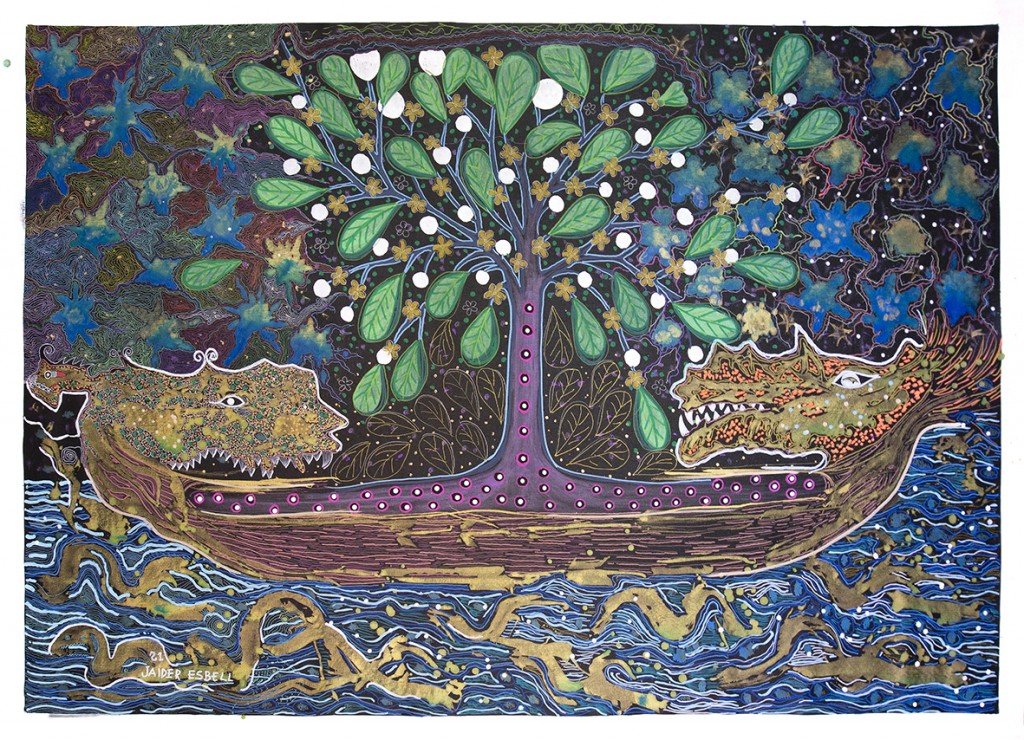Museu Virtual na Amazônia
uma proposta de protagonismo das artistas indígenas em Roraima
DOI:
https://doi.org/10.18227/2317-1448ted.v30i01.7949Palavras-chave:
Amazônia, Cultura digital, Museus Virtuais, Lei nº 11.645Resumo
A presente proposta propõe discutir o potencial da construção de um Museu Virtual com Artes de Mulheres Indígenas em Roraima e seu uso pedagógico, visando contribuir na implementação da Lei nº 11.645. A partir do uso das Tecnologias da Informação e Comunicação (TIC), recurso que será disponibilizado gratuitamente na web, propiciaremos a divulgação e a democratização das artes e das histórias de mulheres indígenas em Roraima. E assim o discente, na interação com o Museu, será um sujeito ativo, reflexivo e crítico. A metodologia utilizada consiste na pesquisa qualitativa, com resultados que permitem a vivência de experiências inovadoras na proposição de um espaço de protagonismo das mulheres indígenas e dos discentes no processo de ensino/aprendizagem.
Referências
BRASIL. Ministério de Educação e Cultura. LDB - Lei nº 9394/96, de 20 de dezembro de 1996.
______. Lei 12.287, de 13 de julho de 2010.
______. Lei nº 11.645, de 10 de março de 2008. Altera a Lei no 9.394, de 20 de dezembro de 1996, modificada pela Lei no 10.639, de 9 de janeiro de 2003. Brasília, 2008. Disponível em < https://www.planalto.gov.br/ccivil_03/_ato2007-2010/2008/lei/l11645.htm> Acesso em: 17 nov. 2023.
______. Ministério de Educação. Conselho Nacional de Educação. Parecer CNE/CEB nº 14 de 2015.
CONSIGLIO, Thiago. Paulo Freire, mediador cultural: questões para uma epistemologia da educação museal. In: CASTRO, Fernanda; SIQUEIRA, Juliana; CONSIGLIO, Thiago; PINHEIRO, Adson (Org.). Paulo Freire e a Educação Museal dos vínculos históricos às ações para o esperançar. Rio de Janeiro: Museu Histórico Nacional, 2022.
ESBELL, Jaider. Na sociedade indígena, todos são artistas. Arte & Ensaios, Rio de Janeiro, PPGAV-UFRJ, v. 27, n. 41, p. 14-48, jan.-jun, 2021.
FREIRE, Paulo. Pedagogia da tolerância. Rio de Janeiro: Paz e Terra. 2.ª Ed. 2013.
JESUS, Naine Terena de. Arte Indígena do Brasil: midiatização, apagamentos e ritos de passagens. Cuiabá: Oráculo Comunicação, Educação e Cultura. 2022.
KAYAPÓ, Edson. BRITO, Tamires. A pluralidade étnico-cultural indígena no Brasil: o que a escola tem a ver com isso? Mneme – revista de humanidades. Caicó, v. 15, n. 35, p. 21-37, jul./dez. 2014.
LÉVY, Pierre. O que é o virtual? Trad. Paulo Neves. São Paulo: Ed. 34, 1996.
VASCONCELOS, Karla Colares. As práticas educativas digitais nos museus virtuais. 2014. 130f. – Dissertação (Mestrado) – Universidade Federal do Ceará, Programa de Pós-graduação em Educação Brasileira, Fortaleza (CE), 2014.
Downloads
Publicado
Como Citar
Edição
Seção
Licença
Copyright (c) 2024 Textos e Debates

Este trabalho está licenciado sob uma licença Creative Commons Attribution 4.0 International License.
Os direitos autorais para os artigos publicados são do autor, com direitos do periódico sobre a primeira publicação. Os autores somente poderão utilizar os mesmos trabalhos em outras publicações indicando claramente este periódico como o meio da publicação original. Permite-se o uso gratuito dos artigos em aplicações educacionais e científicas, desde que citada a fonte.

Este obra está licenciado com uma Licença Creative Commons Atribuição 4.0 Internacional.





